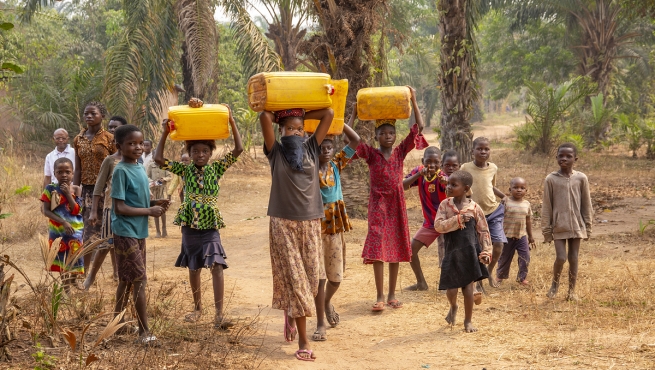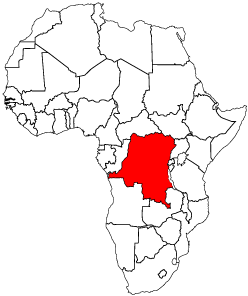DR CONGO: Center in need of new water source

Water system unable to meet growing demand
(MissionNewswire) The Muetu Don Bosco Center in the Makala neighborhood of Mbuji-Mayi, Democratic Republic of the Congo*, needs a new water source to meet the growing demand in the community, reported Mission Don Bosco in Turin, Italy. Founded in 1995, the Don Bosco Center provides services for 4,900 people.
With a population of 3 million people, Mbuji-Mayi is the second largest city in the Democratic Republic of the Congo and the capital of the Kasai Oriental province. Since 1990, the province has been experiencing widespread unemployment, unequal distribution of wealth, low agricultural production compared to demand and exploitation in the diamond extraction market.
Despite the wealth of mineral resources, the city is one of the poorest in the country. Close to 75% of people live on less than $0.50, a day and more than 80% of the population does not have access to health services, school education or water. The greatest difficulties are concentrated in the peripheral areas of the city, such as the district of Makala, where people lack a water source and are at risk of violence. Those accessing the center and others in Makala are forced to go in search of water in other regions, putting them more at risk.
Father Mario Perez, a Salesian missionary in Mbuji-Mayi, explained, “Most of the members of Mbuji-Mayi’s families are unemployed or survive on small earnings working in diamond mines or in agricultural fields more than 25 kilometers (approximately 15.5 miles) from the residence. In this area, almost all households do not have access to electricity or drinking water. Here the water, health and nutritional emergency is the horizon in which almost the entire population lives.”
Fr. Perez added, “During the rainy season, residents try to collect rainwater, but even in this period, due to the lack of infrastructure, they are unable to cover the family needs. During the dry season, they obtain supplies from the Bushimaie river, which is contaminated by very harmful chemical substances and fecal bacteria, and spreads numerous diseases such as cholera, typhoid, hepatitis, poliomyelitis and diarrhea, which is often fatal, especially for children under age 5.”
The Don Bosco Center currently has a water supply system that allows for 2,800 liters (approximately 740 gallons) of drinking water daily. Given the greater need, Salesians buy another 15,000 liters (approximately 4,000 gallons) of filtered water every day. In recent years, spending has become unsustainable and it does not guarantee they have water to meet the need.
The goal is to dig a deep well to provide water for the entire Salesian community and beyond. With the outbreak of another cholera epidemic that continues to claim victims every day, the implementation of this project is considered an urgent priority by the Salesians and by local authorities. The goal is provide a safe and sufficient water source to promote proper hygiene and allow for safe drinking water. This would also limit the risk of young women and girls searching for water.
###
Sources:
ANS Photo (usage permissions and guidelines must be requested from ANS)
ANS – Democratic Republic of Congo – A well for thousands of thirsty people
Salesian Missions – Democratic Republic of the Congo
UNHCR – Democratic Republic of the Congo
*Any goods, services, or funds provided by Salesian Missions to programs located in these countries were administered in compliance with applicable laws and regulations, including sanctions administered by the U.S. Department of Treasury’s Office of Foreign Asset Control.





